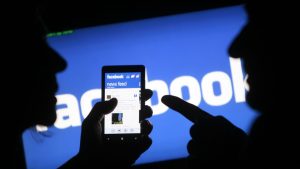 Facebook has officially launched Workplace, aiming to expand its services into the business world. Many people communicate with their friends primarily via social media platforms like Facebook. The social media giant now wants us to use Facebook at the office during working hours. A company spokesperson said, “The same way we connect people, we want to connect coworkers.”
Facebook has officially launched Workplace, aiming to expand its services into the business world. Many people communicate with their friends primarily via social media platforms like Facebook. The social media giant now wants us to use Facebook at the office during working hours. A company spokesperson said, “The same way we connect people, we want to connect coworkers.”
The major strength of Workplace is how familiar users already are with Facebook. The new Workplace platform offers the same look, feel, and features as Facebook’s main platform. Workplace was developed in Facebook’s London office and was tested in private for 18 months before release.
Facebook’s Workplace could revolutionize how office workers communicate. A survey conducted in 2015 showed that the average white-collar worker spent roughly 6.3 hours a day on email, with more than half of that time devoted to work emails. Composing in long form is mentally taxing and searching for relevant information in emails is time-consuming. The new platform could replace all emails within your company.
Workplace’s other competitors are bundles of products from Microsoft and Google. Microsoft’s Yammer chat app and Google’s Hangouts are included with their business packages. Microsoft and Google products integrate with Workplace at launch to complement the corporate software programs.
Unlike Facebook’s main platform, there’s a fee to use Workplace, but it is less than half the price of its closest competitors. Workplace also lowers its rate according to the size of the organization. Over a thousand companies currently use Workplace, with the largest number of users located in India. Facebook has also signed on a handful of companies as strategic partners in the endeavor.
Many technologies that started in the consumer market have subsequently crossed over into the professional setting. The iPhone is now used throughout many businesses, effectively replacing BlackBerry cellphones as the business world’s go-to device. Apple quickly eclipsed Blackberry’s core market among large corporations. Blackberry’s valuation subsequently plunged from $83.4 billion to $3.4 billion in less than five years.
